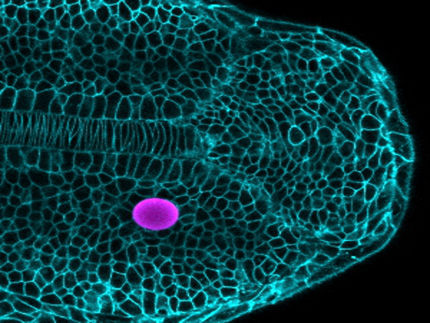Agilent Technologies Announces Winner of Third Annual Early Career Professor Award
Agilent Technologies Inc. announced the winner of the company's third annual Agilent Early Career Professor Award. Dr. Michael Jewett, assistant professor of Chemical and Biological Engineering in the McCormick School of Engineering at Northwestern University, will receive the prize, which provides an unrestricted research award of $50,000 per year for two years to Northwestern in Dr. Jewett's name.

Dr. Michael Jewett, assistant professor of Chemical and Biological Engineering in the McCormick School of Engineering at Northwestern University.
Having joined the faculty of engineering at Northwestern in 2009, Dr. Jewett engineers biological systems for compelling applications in medicine and biotechnology. His many significant contributions prior to joining Northwestern include research in cell-free biology during his doctoral studies at Stanford University; systems biology research at the Technical University of Denmark; and investigation into synthetic biology as a post-doctoral researcher at the Harvard Medical School.
The Agilent Early Career Professor Award, under the auspices of Agilent's University Relations program, is awarded annually to recognize and encourage excellence in measurement research. It seeks to establish strong collaborative relationships between Agilent researchers and leading professors early in their careers, as well as to underscore Agilent's role as a sponsor of university research.
This year’s award focused on the field of systems biology. Dr. Jewett was among five finalists whose research builds on understanding by relating different views of biological systems while contributing to the understanding of life. To qualify for the award, a professor must also make significant original research contributions that enable measurements of importance to Agilent and the world.
Most read news
Organizations
Other news from the department science

Get the life science industry in your inbox
By submitting this form you agree that LUMITOS AG will send you the newsletter(s) selected above by email. Your data will not be passed on to third parties. Your data will be stored and processed in accordance with our data protection regulations. LUMITOS may contact you by email for the purpose of advertising or market and opinion surveys. You can revoke your consent at any time without giving reasons to LUMITOS AG, Ernst-Augustin-Str. 2, 12489 Berlin, Germany or by e-mail at revoke@lumitos.com with effect for the future. In addition, each email contains a link to unsubscribe from the corresponding newsletter.





















































